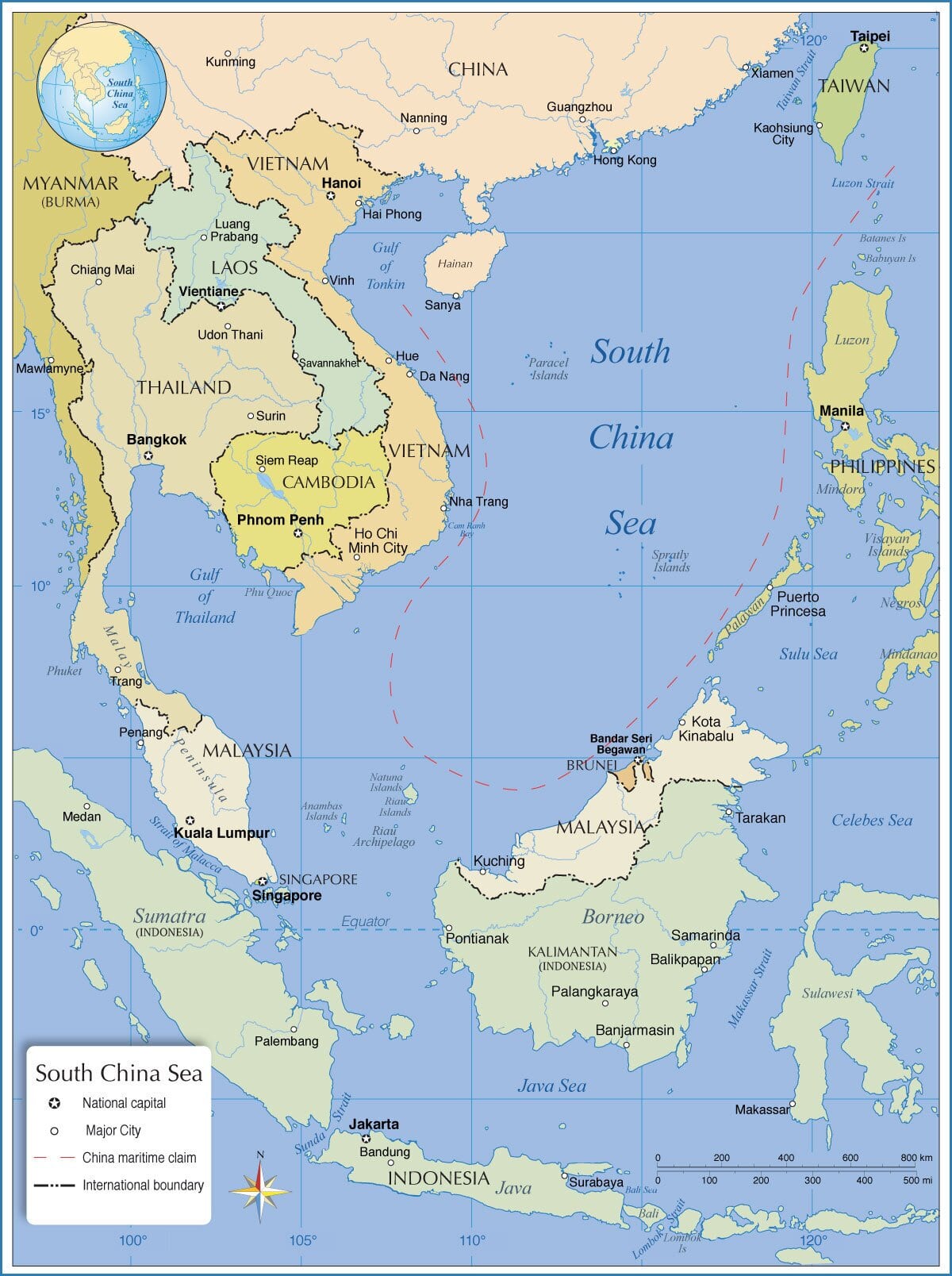Chinese Trawlers in South China Sea | 01 Apr 2020
Why in News
The Chinese fishing fleets have been seen raiding the rich waters of the South China Sea that are internationally recognised as exclusively Indonesia’s to fish.
- The fishermen in Natuna Islands (Indonesia) are worried.
Key Points
- The Chinese steel trawlers scrape the bottom of the sea and destroy other marine life.
- Chinese trawling aslo breaches the maritime borders.
- Since China is its largest trading partner, it has been argued that the Indonesian government has not taken any steps to deal with the incursions by Chinese fishing boats.
- China’s illegal fishing near the Natuna islands carries global consequence, reminding regional governments of Beijing’s expanding claims to the South China Sea through which one-third of the world’s maritime trade flows.
- China wants to claim the resources such as oil, natural gas, and fish in the South China Sea.
- The presence of Chinese fishers also helps to embody China’s maritime claims. The nine dash line (rejected by an international tribunal) asserted by China violates the principle of Exclusive Economic Zones (EEZ).
South China Sea
- The South China Sea is an arm of western Pacific Ocean in Southeast Asia.
- It is south of China, east & south of Vietnam, west of the Philippines and north of the island of Borneo.
- Bordering states & territories (clockwise from north): the People’s Republic of China, the Republic of China (Taiwan), the Philippines, Malaysia, Brunei, Indonesia, Singapore and Vietnam.
- It is connected by Taiwan Strait with the East China Sea and by Luzon Strait with the Philippine Sea.
- It contains numerous shoals, reefs, atolls and islands. The Paracel Islands, the Spratly Islands and the Scarborough Shoal are the most important.
Importance
- This sea holds tremendous strategic importance for its location as it is the connecting link between the Indian Ocean and the Pacific Ocean. (Strait of Malacca)
- According to the United Nations Conference on Trade And Development (UNCTAD) one-third of the global shipping passes through it, carrying trillions of trade which makes it a significant geopolitical water body.
- According to the Department of Environment and Natural Resources, Philippines, this sea has one-third of the entire world’s marine biodiversity and contains lucrative fisheries providing food security to the Southeast Asian nations.
- The South China Sea is believed to have huge oil and gas reserves beneath its seabed.

